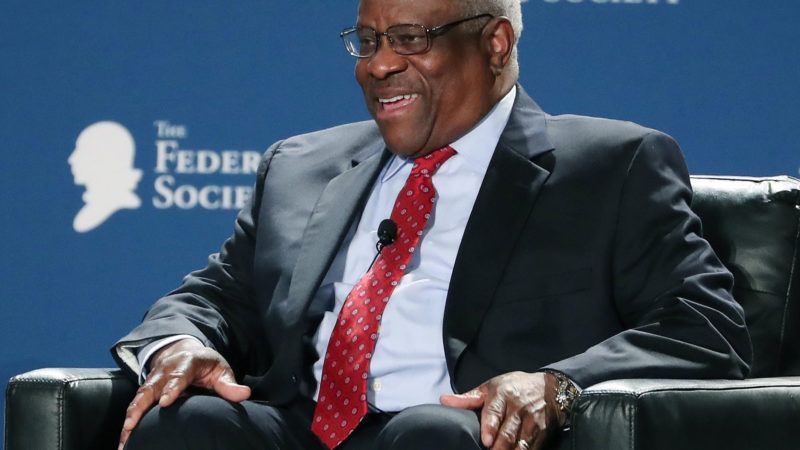Clarence Thomas Upbraids SCOTUS for 'Prolonging Our Decade-Long Failure to Protect the Second Amendment'
"The fundamental protections set forth in our Constitution," Thomas writes, should be "applied equally to all citizens."

In District of Columbia v. Heller (2008), the U.S. Supreme Court struck down D.C.'s local handgun ban because it violated the individual right to keep and bear arms secured by the Second Amendment. In McDonald v. Chicago (2010), the Court enforced that right against the states, invalidating a similar handgun ban in Chicago. The Court has since had multiple opportunities to review the constitutional merits of various other gun control schemes, but it has mostly declined to hear those cases.
That inaction continued today. Once again, the Court refused to hear a major Second Amendment case. And once again, the Court's failure to act prompted a sharp complaint from Justice Clarence Thomas, who upbraided his colleagues this morning for "prolonging our decade-long failure to protect the Second Amendment."
Thomas' complaint came in the form of a dissent from the denial of certiorari in Rogers v. Grewal. The case dealt with New Jersey's requirement that any person seeking to get a handgun carry permit must first demonstrate to the satisfaction of the authorities "that he has a justifiable need to carry a handgun." Among other things, the applicant must "specify in detail the urgent necessity for self-protection, as evidence by specific threats or previous attacks which demonstrate a special danger to the applicant's life that cannot be avoided by means other than by issuance of a permit to carry a handgun." Under the rules, "generalized fears for personal safety are inadequate."
Thomas Rogers, who operates a business that services automated teller machines, wanted to carry a gun for self-defense while out on the job. But he failed to meet the state's exacting standards. The Supreme Court today declined to take up his constitutional challenge to the gun control regulation.
"In several jurisdictions throughout the country," Justice Thomas observed of Rogers' case and others like it, "law-abiding citizens have been barred from exercising the fundamental right to bear arms because they cannot show that they have a 'justifiable need' or 'good reason' for doing so. One would think that such an onerous burden on a fundamental right would warrant this Court's review." Indeed, Thomas continued, "this Court would almost certainly review the constitutionality of a law requiring citizens to establish a justifiable need before exercising their free speech rights. And it seems highly unlikely that the Court would allow a State to enforce a law requiring a woman to provide a justifiable need before seeking an abortion. But today, faced with a petition challenging just such a restriction on citizens' Second Amendment rights, the Court simply looks the other way."
Thomas left little doubt that it if were up to him, Second Amendment cases like this one would get their day at the Supreme Court—and the gun owners would prevail.


Show Comments (71)